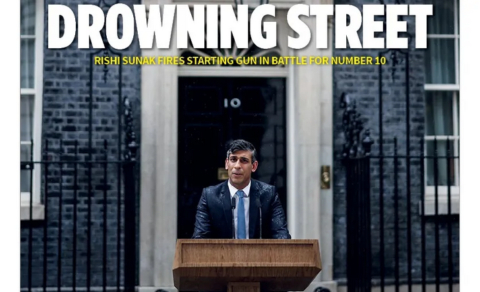In Quillette, Jonathan Kay notes the third anniversary of the “mass graves” moral panic here in the utterly dysfunctional Dominion:

Kamloops Indian Residential School, 1930.
Photo from Archives Deschâtelets-NDC, Richelieu via Wikimedia Commons.
This week marked the third anniversary of Canada’s strange “unmarked graves” scandal — a morbid social panic that took hold of my country in late May 2021, following unverified claims that the corpses of 215 (presumably murdered) Indigenous children had been located at the site of a former school in Kamloops, British Columbia.
As I’ve already described this saga in several Quillette articles, I will not belabour the specifics (which, by now, have also been covered in the international press, as well as Canada’s National Post and Dorchester Review). Instead, this update will focus on the manner by which Canadian public figures (journalists, in particular) have tried to evade accountability for their original gullibility, as it presents an interesting case study in social psychology on a national scale.
The background here, as anyone who’s followed the story closely will know, is a genuinely shameful aspect of Canadian history — the federally funded, church-run system of residential schools established in the nineteenth century as a means to assimilate the country’s Indigenous population. In many cases, children were forced to attend boarding schools located hundreds of miles from their home reserves. Mortality rates from infectious diseases (especially tuberculosis) were tragically high, and the whole issue was properly referred to an authoritative body known as the Truth and Reconciliation Commission, which concluded that at least 3,200 children died after enrolling in residential schools. The real number might well be considerably higher.
All of this had been common knowledge in Canada for years by the time Rosanne Casimir, Chief of the Tk’emlúps te Secwépemc First Nation in Kamloops claimed to have discovered the remains of 215 Indigenous children buried on the site of the former Kamloops Indian Residential School.
In fact, she’d discovered nothing of the kind. But the Canadian media ran with the claim as if it were the proven truth. A typical headline: “Tk’emlups confirms bodies of 215 children buried at former Kamloops Indian Residential School site“.
If you don’t live in Canada, it will be hard to appreciate the national hysteria that resulted. In the press, Canada was officially anointed a nation of baby killers. Prime Minister Justin Trudeau lowered the flag on public buildings for five months. Dozens of churches were burned by arsonists in apparent acts of retribution. The word “genocide” was thrown around in casual parlance as if we were Nazi Germany or Rwanda in 1994. The Canadian Press called the discovery of these ostensible unmarked graves the 2021 “Story of the Year.”
Then the days passed, the national festival of self-laceration abated somewhat, and it began dawning on some of us that — um, wait a minute — no evidence of graves had actually been presented yet. That evidence was on its way, right?















